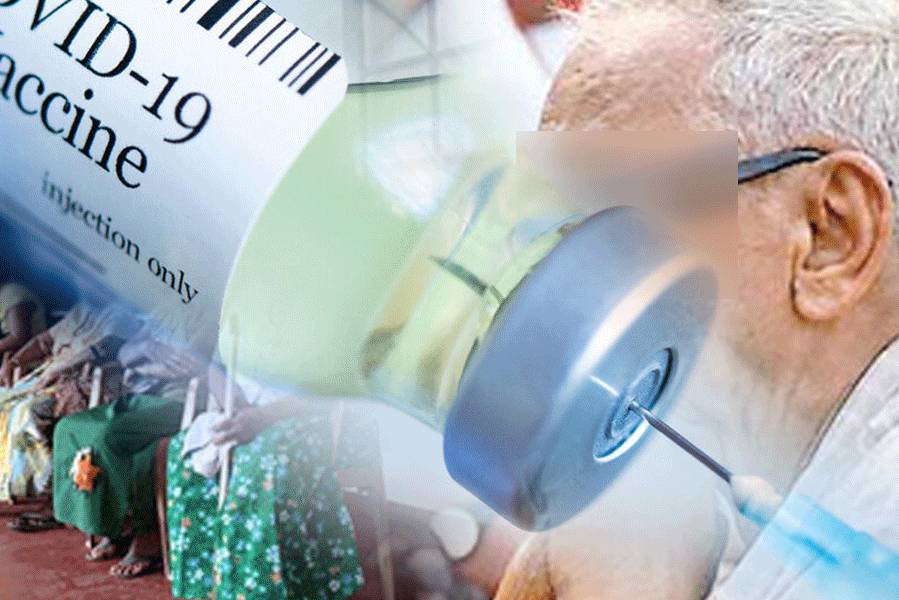Thailand, Indonesia, Pakistan, Lebanon and South Africa have previously enabled similar moves in their efforts to save lives and reduce COVID cases
Malaysia has joined scores of other countries in allowing the private purchase of WHO-approved vaccines in a bid to save lives and stop the rapid spread of COVID-19.
Previously, countries such as Thailand, Indonesia, Pakistan, Lebanon, and South Africa announced similar moves in an attempt to better manage the fight against the pandemic. Initiatives so far for a similar move in Sri Lanka have failed to materialise and the delay has raised concerns. Over the weekend, Sri Lanka crossed the 200,000 mark in terms of cumulative COVID-19 patients whilst the death toll has surpassed 1,700.
Analysts said roping in the private sector will help Government efforts to ensure that the third wave of the COVID-19 pandemic does not get more aggravated.
Malaysia said last week state governments and private hospitals across the country can purchase their own COVID-19 vaccines, including those which are not used in the National COVID-19 Immunisation Program (NIP), such as Moderna and Sinopharm.
Vaccine Coordinating Minister Khairy Jamaluddin said states and private hospitals in Malaysia can source their own vaccines as long as the vaccines have been approved by the World Health Organization (WHO), according to a report published by www.channelnewsasia.com
“If the state governments want to purchase their own vaccines and bring these other vaccines in, they can go ahead. We can even facilitate discussions with the pharmaceutical companies,” said Khairy.
The state governments or private hospitals need only register these purchases with the Health Ministry’s National Pharmaceutical Regulatory Agency (NPRA), he added.
However, if these parties wish to purchase vaccines that are used in the NIP, such as Sinovac and Pfizer-BioNTech vaccines, then they will have to wait for the suppliers to fulfil the federal government’s orders first.
“The suppliers must fulfil our orders first, and once that is fulfilled, then they can supply to the states,” said Khairy.
“We are open to this. Don’t say that there is any blocking or monopoly (by the federal government),” he added.
The vaccines currently used in Malaysia’s NIP are Pfizer-BioNTech, Sinovac and AstraZeneca. Other vaccines that have been approved by WHO include Moderna and Sinopharm.
In April, Khairy dismissed accusations by critics that the federal government had not been helpful in allowing state governments from buying their own vaccines.
Opposition Leader Anwar Ibrahim had claimed that the federal government had stonewalled attempts by Selangor and Sarawak state governments as well as private entities from sourcing their own government-approved vaccine supplies.
Malaysia’s vaccination drive, which began in February, is now in its second phase with more than 3.5 million doses of COVID-19 vaccines have been administered so far.
Among them are more than 1.1 million people who have already received their two-dose vaccination. Khairy had said that the vaccination rate in the country reached 100,000 doses a day since 27 May, and the target now is to achieve 200,000 doses by the end of July. (For original story see https://www.channelnewsasia.com/news/asia/malaysia-states-hospitals-buy-covid19-vaccine-sinopharm-moderna-14939232)
Following are the links for the respective country initiatives to promote private purchases of COVID-19 vaccines.
Indonesia: https://www.aa.com.tr/en/asia-pacific/indonesia-firms-allowed-to-buy-vaccines-for-employees/2149386
Lebanon initiatives: https://english.alarabiya.net/amp/coronavirus/2021/04/24/Lebanon-s-private-and-public-sectors-cooperate-on-COVID-19-vaccination-campaign
South Africa: https://www.bloomberg.com/news/articles/2021-04-23/south-africa-contracts-companies-to-import-covid-19-vaccines
Pakistan: https://www.devex.com/news/in-pakistan-covid-19-vaccines-go-on-sale-99438
(FT)

